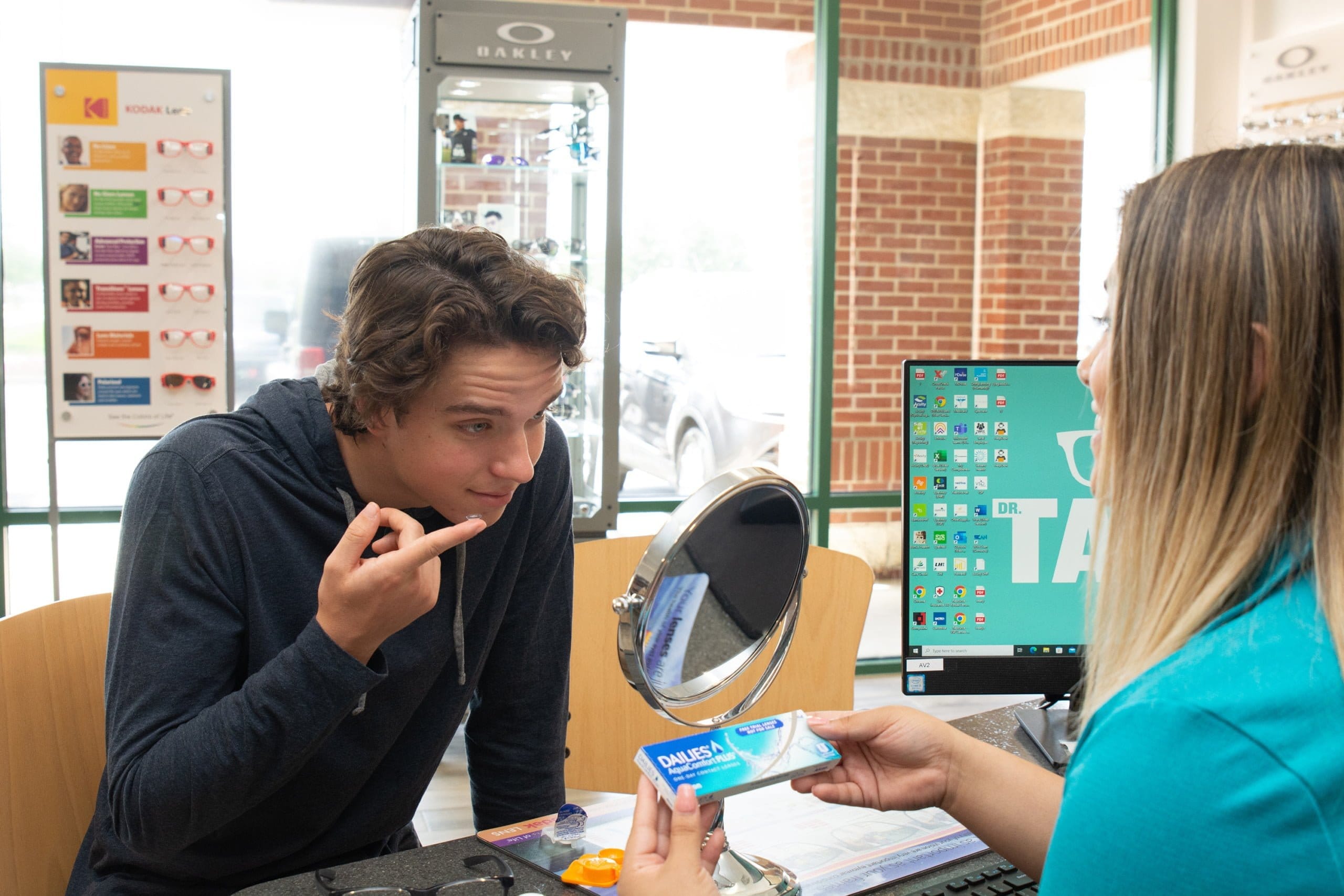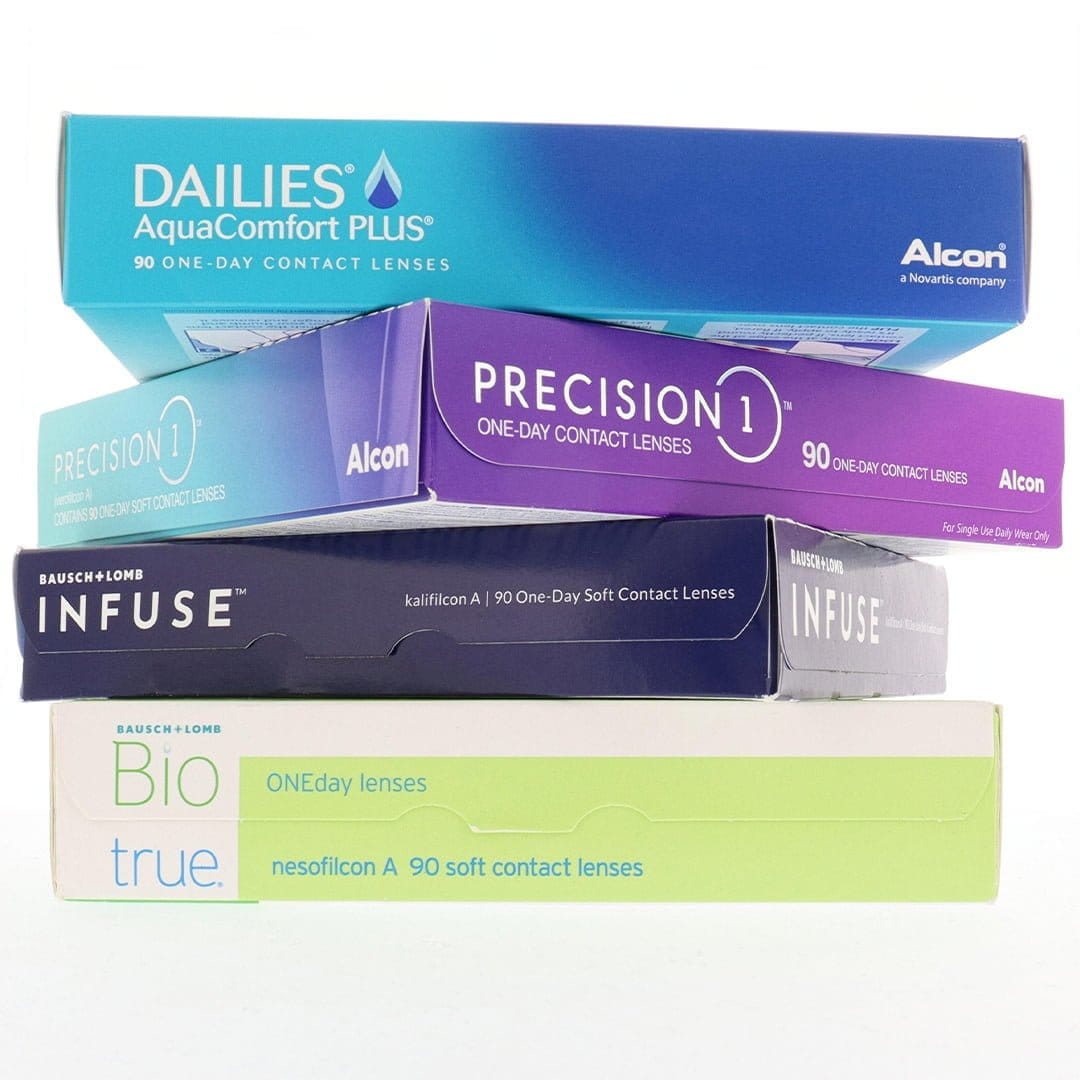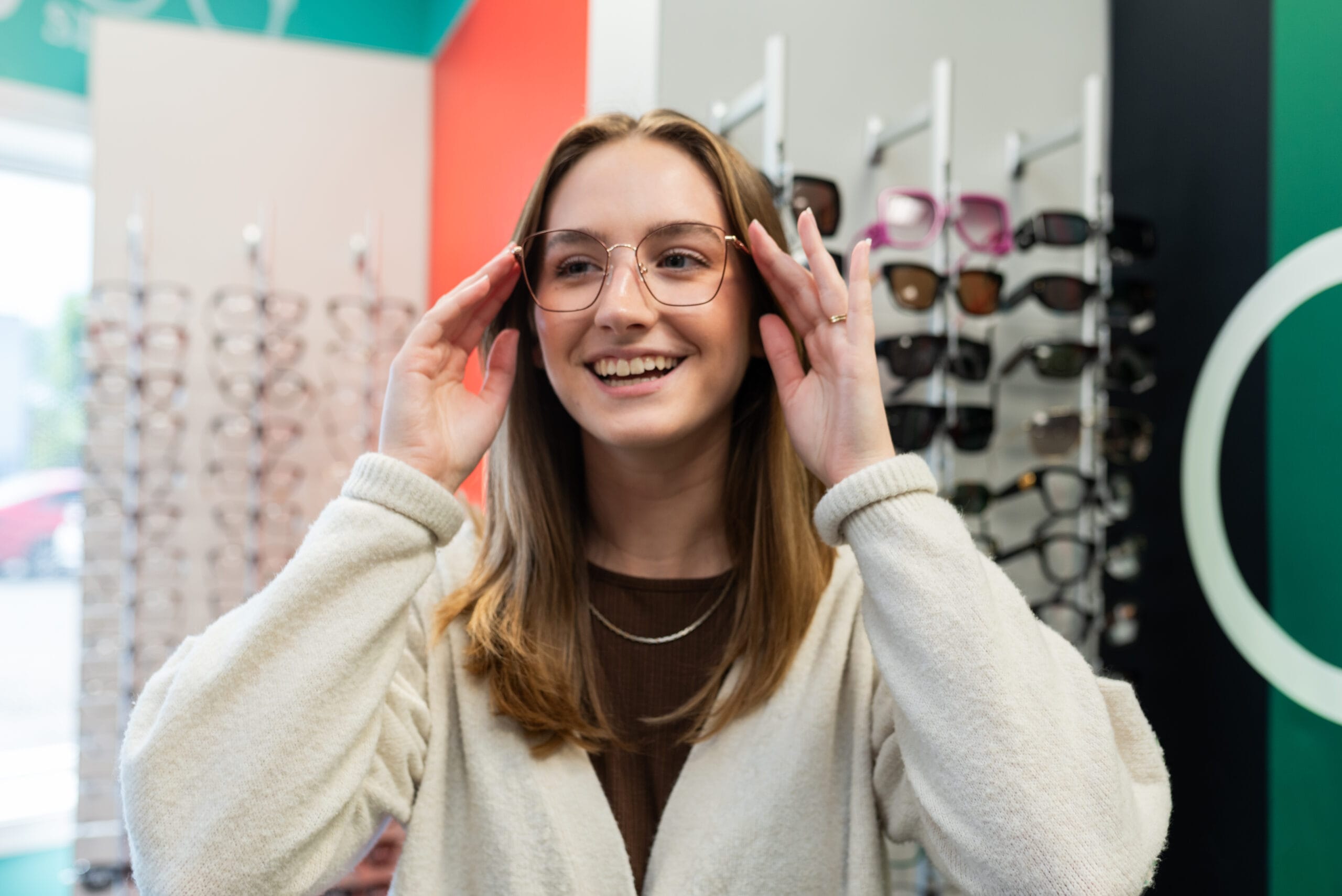Contact lenses are a convenient, comfortable eyewear option that allows so many people to see the world clearly. And, when contacts are worn correctly—they’re safe! While it can be tempting to sleep in your contacts after a long day or leave them in for a short nap, the risks simply aren’t worth it. Let’s break down all the risks of keeping your contacts in while sleeping.
Sleeping in Your Contacts
Sleeping in contact lenses is not recommended, and puts your eye health at risk. We get it. After a long day it can be easy to forget to take out your contacts before settling into bed for the night. In fact, approximately one-third of contact lens wearers report sleeping or napping in their lenses. With so many wearers forgetting proper contact lens care, it makes sense to question how unsafe it is to sleep in your contacts. But study after study confirms that sleeping in your contacts exposes your eyes to infection.
What Happens If I Sleep in My Contacts?
According to the CDC, wearing contact lenses to bed increases your risk of an eye infection by up to eight times. One infection that is most common with contact lens wear is microbial (bacterial) keratitis.
Microbial Keratitis
One infection you could be at risk for while wearing contact lenses is microbial (or bacterial) keratitis, which causes inflammation of the cornea. Microbial keratitis can lead to vision loss if left untreated.
Symptoms of bacterial keratitis include:
• Eye pain
• Eye redness
• Blurred vision
• Sensitivity to light
• Excessive tearing
• Eye discharge
Conjunctivitis
Pink eye or conjunctivitis is inflammation and irritation of the conjunctiva, which is the membrane lining over the white part of your eye. Pink eye is extremely contagious and is commonly caused by a viral or bacterial infection. Your eye doctor can prescribe antibiotics or eye drops depending on the severity.

How Long Can I Sleep in my Contacts?
Unfortunately, no amount of time is considered safe for sleeping in contact lenses. Even a short nap can cause eye irritation. If you’re feeling drowsy, your best bet is to take out your contacts before you fall asleep as a precaution. Why risk it?
What Should I Do After I Sleep in my Contacts?
If you wake up and discover you still have your contacts in, safely take them out and monitor your eyes for signs of infection. If you’re experiencing any discomfort, opt for wearing eyeglasses and talk to your optometrist as soon as possible.
Also, don’t beat yourself up. No one is perfect and mistakes are bound to happen. In fact, between 40%-90% of contact lens wearers report not always properly following the care instructions for their contact lenses.
Sleeping in Your Contacts Regularly?
If you’ve been wearing your contacts to bed as a habit, we urge you to start practicing better contact lens hygiene! Just because you’ve avoided a serious eye infection doesn’t mean you’re at any less risk. We hope after reading this blog you make some changes in your contact lens nighttime routine. Your eyes will thank you.
Safest Option? Take Your Contacts Out Before Bed.
Contact lenses increase the risk of transferring germs to your eyes from other sources, including your hands or your contact lens case. Sleeping in your contact lenses only gives germs an environment where it’s easier to thrive. That’s why it’s so important to wash your hands with soap and water before touching your eyes and every time you insert or take out your lenses. The same goes for your case if you have one. Regularly clean your contact lens case and change out the solution daily. We know the urge to “top off” your contact lens solution is real, but we don’t recommend it (germs love dirty solution)! Cleaning shortcuts are not worth it when it comes to the health of your eyes. Bonus tip: Set an alarm to remind yourself to take out your contacts before going to sleep.
Why You Should Consider the Switch to Daily Contact Lenses
Daily disposable contact lenses are safer, more comfortable, more hygienic, and the most recommended type of contacts by eye doctors. The benefits of daily contacts are that they are thrown away at the end of the day, so you always start your morning with a fresh pair. No contact lens case cleaning is required!

Daily Contacts Are More Affordable Than You Think.
Daily contact lenses sound pricey, but they are more affordable than you think. While the upfront cost of an annual supply of daily contacts can be higher than monthly contacts, most of our daily disposable brands offer sizable rebates, which can lower the cost of an annual supply of contacts cost to less than $1 a day. Also, to make contact lenses more accessible to our patients, we created our Sight Savings Club to help you see your best at the most affordable price. You can save up to $250 when you join our Sight Savings Club, so be sure to check out the many benefits!
